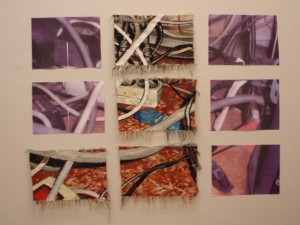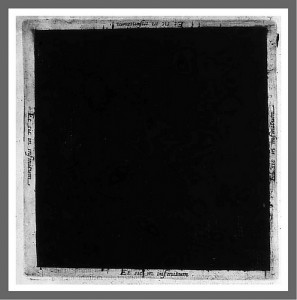Nils Röller: Measuring means without ends: Cage, Steinweg, Duras
Tuesday, April 13th, 2010We can turn it. A frame is a form of closure, but also a form of opening. It allows concentration. We may argue that reality is a Grenzidee (an idea of limit (limes)). We may approach reality only by setting up limits, in between which we may perceive.
Instruments for measurement set limits.
A measurement measures measuring means, John Cage thinks (Quote found in: Youngblood, Gene: Expanded Cinema, New York: Dutton, 1970, p. 136).
But what are measuring means? Mankind is conceivable as a means of measuring. It measures the universe as well as mankind itself. In order to function appropriately mankind has to become a measuring means for its own ends. These ends can be achieved by emptying human subjects. How this emptying happens in an aethetic process Marguerite Duras works show (see: Marcus Steinweg and Rosemarie Trockel: Duras. Berlin: Merve, 2008).
* J. adds: Metaphysics are a battlefield. A battefield which Kant conceives as female. He calls metaphysics a battlefield in one phrase. In the following phrase he compares metaphysics with a matron that is left alone.
** Is a hole a form that opens, or a form that closes? It excludes from integrity, or it opens towards an integrity which is open to the other. But a hole cannot be thought as a totally open. Without the framework the hole could not exist.


